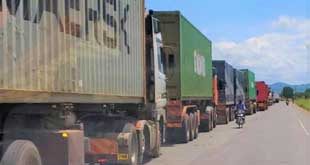
And Lebanon’s deeper crisis
| ISHAAN THAROOR | How much can a country bear? National leaders of all stripes love to extol the toughness and courage of their people. But in many instances it’s a truism that does nothing to address the reasons these people have to constantly muster such resilience.
That’s the case in Lebanon, a small country buckling under a shocking pileup of calamities. The huge, deadly explosion that devastated sections of Beirut, the capital city, on Aug.4 was the most visceral blow yet for a society that has endured generations of trauma, from famine to bitter civil strife to an influx of more than a million Syrian refugees to a cycle of political chaos and economic dysfunction that has plunged much of the country’s middle class into poverty over just the past year.
The blast originated in a warehouse in Beirut’s port, but it was felt more than 150 miles away across the Mediterranean on the island of Cyprus. It killed at least 135 people and injured thousands more, filling hospitals already under pressure from the coronavirus pandemic. It’s estimated that more than a quarter-million people were made, in a flash, homeless.
Social media was replete with cellphone and security camera videos of a giant mushroom cloud dwarfing coastal Beirut, its impact rippling through much of the city, turning part of the port to a smoking crater, blowing out windows on buildings, reducing once elegant streets to ruins and rubble.
“My big fan split right in half. My massive living room windows flew at me,” noted my colleague Sarah Dadouch. “The glass didn’t just shatter; the windows themselves flew clean off. I genuinely, even now, have no idea how I am not dead.”
In the aftermath, Lebanese anger and despair have intensified. “What more can we take?” Nabil Allam, a financial manager of a Beirut hospital, said to my colleagues. “We have a financial crisis. We have a political crisis. We have a health-care crisis, and now this.”
Allam likened witnessing the explosion at the city’s port to the sight of the nuclear bombing of Hiroshima. Other analysts marked it as Lebanon’s Chernobyl, an apocalyptic accident that exposed the inescapable failure and venality of an entrenched political class. Rumors swirled over the source of the blast. Was it related to Hezbollah, the powerful Shiite faction? Could it be an Israeli strike? But initial investigations indicate a more banal yet no less troubling origin of the disaster — incompetence and negligence.
Senior Lebanese officials believe the mammoth explosion was triggered after a fire in a warehouse reached another facility that stored some 2,750 tons of ammonium nitrate, a chemical compound that under certain conditions can be dangerously volatile. That supply had been confiscated in 2014 from a tanker, but never safely removed.
“I promise you that this catastrophe will not pass without accountability … Those responsible will pay the price,” Prime Minister Hassan Diab said in a televised speech on Aug.4 night. “Facts about this dangerous warehouse that has been there since 2014 will be announced, and I will not preempt the investigations.”
But few have any more patience left for the political establishment. Drawn from all of Lebanon’s major religious communities, the country’s political elites and influential dynasties are widely viewed as having presided over a fiscal debacle that has seen the value of the country’s currency plummet and the savings of ordinary Lebanese wiped out, while power cuts and mounting piles of uncollected trash come to define daily life. Protests last year eventually forced the collapse of the government, but its technocratic successor has not won much public confidence.
“The negligence in leaving 2,700 tons of ammonium nitrate exposed next to critical infrastructure in the heart of Beirut is the same negligence that has kept Lebanon without essential services such as electricity and garbage collection,” wrote Lebanese-Australian political commentator Antoun Issa. “It’s simply part of the mold caused by a rotten core that has enveloped every aspect of the country.”
“Lebanon is no longer on the brink of collapse. The economy of Lebanon has collapsed,” Fawaz Gerges, professor of international relations at the London School of Economics, said to my colleague Liz Sly last month. “The Lebanese model established since the end of the civil war in 1990 has failed. It was a house of glass, and it has shattered beyond any hope of return.”
“It’s not individuals or a certain group. It’s not bad apples, it’s the whole orchard, all the orchards,” Rabih Alameddine wrote in The Washington Post. “It’s a systemic failure of governance. For years, every faction in the country blamed the other for any disaster. We had a civil war that ended only when all the sides figured they could steal a lot more money if they cooperated.”
Lebanese writer Lina Mounzer pointed to the weariness of her friends and colleagues. “That exhaustion is heavy in the voices and faces of everyone I encounter,” she wrote. “Perhaps resilience has always been the lie we have been fed and that we continue to tell ourselves in order to keep functioning under a state so corrupt it cannot provide a bare minimum of public or social services.”
The question, not least after the explosion in Beirut, is how Lebanon can pick up the pieces now. “Will there be a revolution? An uprising of anger? Any revolutionary impulse has to compete with tribal, sectarian and ideological affiliations,” wrote Faysal Itani, deputy director of the Center for Global Policy. “For that matter, so do the facts: Even if a single official version of the port incident is presented (and even if it is true), some will not believe it. Paradoxically, our distrust of our politicians makes it harder to unite against them.”
****
 The Independent Uganda: You get the Truth we Pay the Price
The Independent Uganda: You get the Truth we Pay the Price


